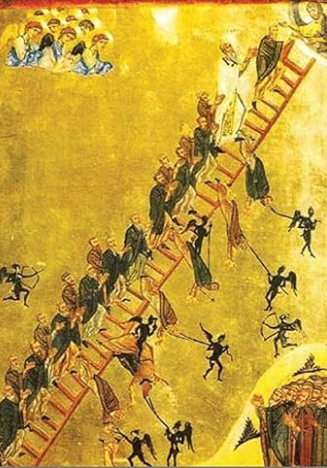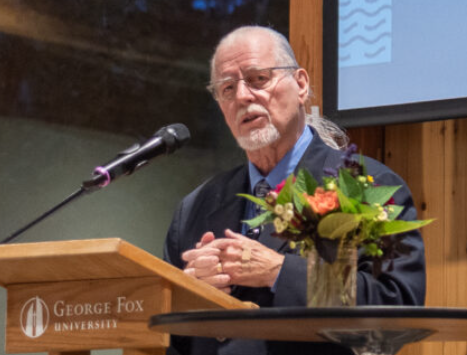
This article has two parts. The first examines some of the Sayings of the Desert Fathers; the second part looks at the book by John Climacus, The Divine Ladder. […]

This article gives an overview of the background and teachings of the Contemplative movement, also known as Contemplative Spirituality, the Spiritual Disciplines, Spiritual Formation, and mysticism.

Most of the book, Praying Like Monks, Living Like Fools, by Tyler Staton, is not about Contemplative practices. Staton uses what is often called the Lord’s Prayer as a template […]

What this adds up to is mysticism, and a mystical view is a natural result of contemplative practices that apparently have captivated Mackie. Mysticism is not a matter of transcending logic or thought; it is actually contra logic and thought. This is why all contemplative teachings downgrade the mind . It is always found in esoteric teachings that there is something profound beyond words and reason that one can experience – a hidden or secret experience and/or wisdom. This is exactly how I thought for over 20 years.
Mackie is planting not only the idea that gaining perception of “another reality” or a “super reality” is positive, but he is offering the means for it through the contemplative practices, which will alter perceptions over time.

What can we say to the claims made by Contemplative proponents? Are their arguments sound and biblical?

These are people, practices, Bibles/Bible apps, and language related to Contemplative teachings listed here due to the increasing influence of the Contemplative Movement. Problems with this movement are multiple and […]

So far, no biblical passage cited as support for these practices has held up under scrutiny. What God’s word does do is that it supremely sheds light on the misunderstanding or misuse of such passages.

Scazzero has a habit of imposing his own experiences and feelings on Scripture as well on all Christians. In this book, he makes broad generalizations, such as all Christians “wear masks,” Christians do not know how to deal with their emotions, and most Christians were not raised in healthy families. It was hard not to write, “speak for yourself!” in the margins of many pages in this book.
There are so many serious issues with this book, it is quite distressing that it is being recommended by many pastors and church leaders. I am not addressing all content of the book, only points related to my areas of my ministry or of obvious concern. Scazzero does offer some good insights in the book, but they are overshadowed by too many troubling statements.

Ezekiel had a “severe alteration of consciousness” when he had his vision in Ezekiel 8. This explains, according to Mackie, the alleged different views of reality Ezekiel and other biblical characters had, and their other “states of consciousness” (starting around 49 min.). This did not need to be spelled out to anyone when the Bible was written, claims Mackie, because they all “took it for granted.” I do not think there is evidence for this in the text; furthermore, I think that seeking such states as well as the belief in “different levels of reality” is contra God and the Bible. A forthcoming article will address this issue and attempt to explain why this is not compatible with Scripture.
Our reality, claims Mackie, is constructed from our experiences (starting around 50 min.) in which we develop “coping mechanisms” and so “what we experience as reality is a result of these shields we build up for years and years.” Whereas we take our dreams as fantasy and what happens during the day as reality, the biblical authors have “the opposite view,” asserts Mackie.

More exposure is needed of the teachings behind the Contemplative practices surging through the church, an area I have researched and written on since the late 1990s. The first part […]
